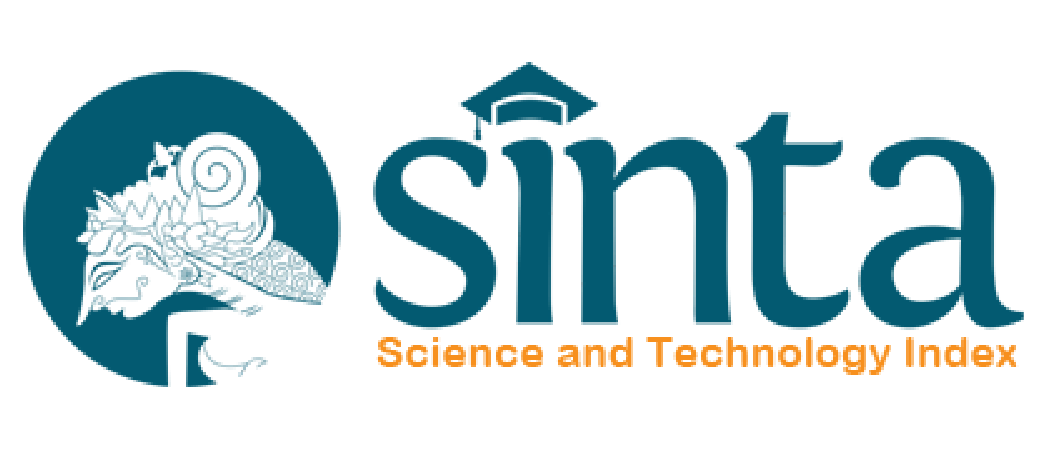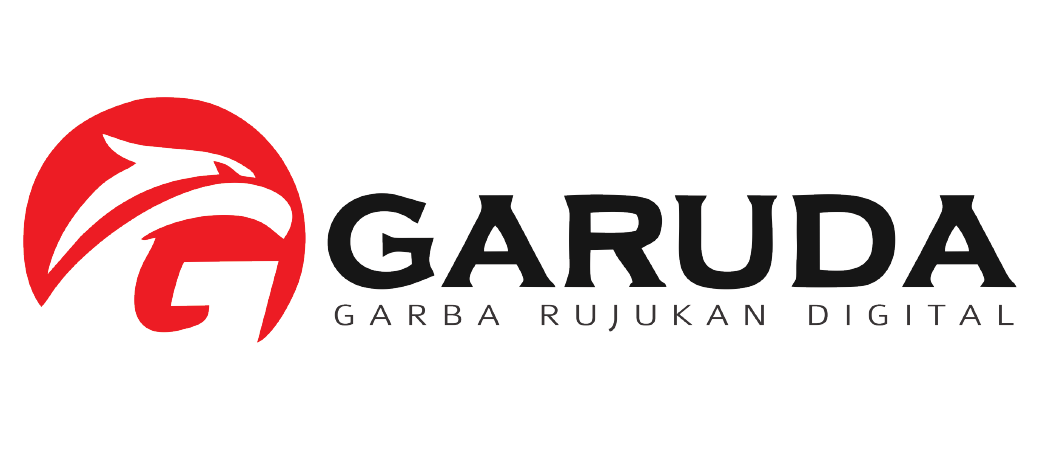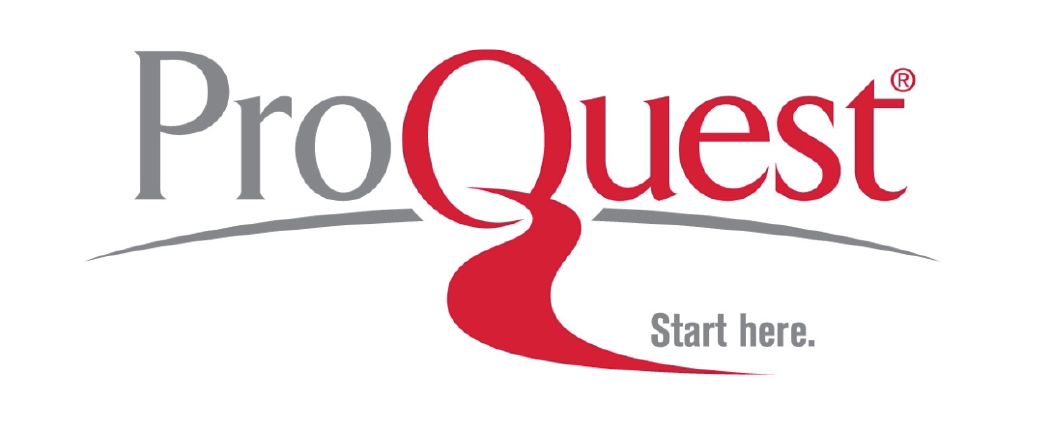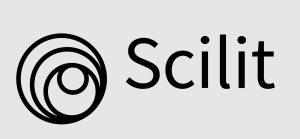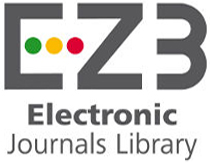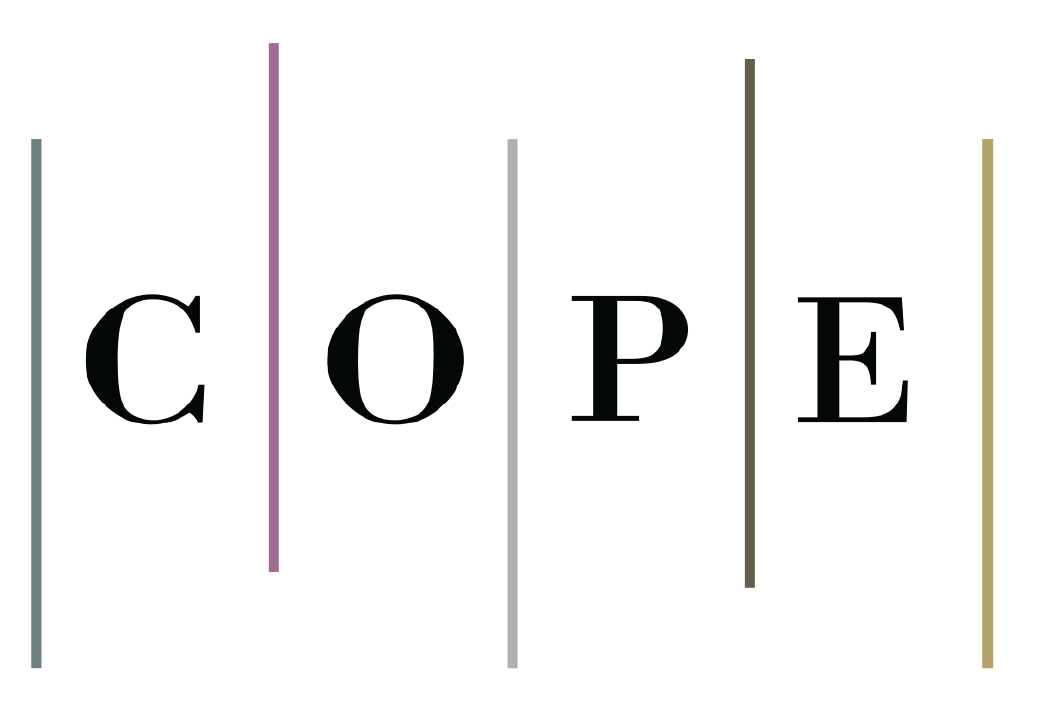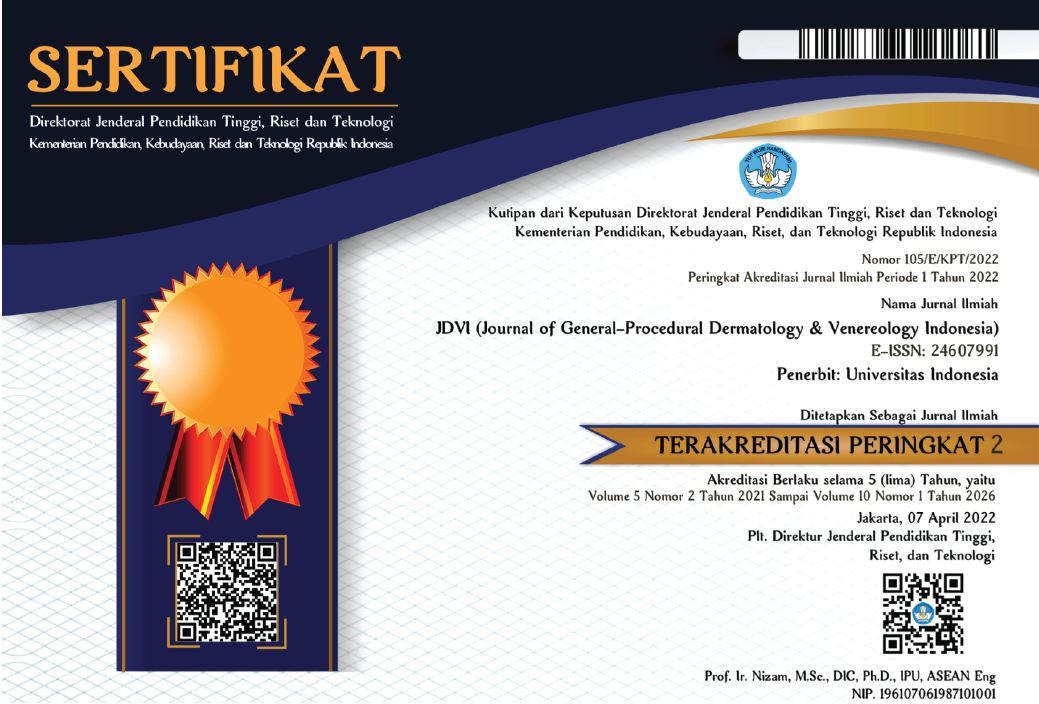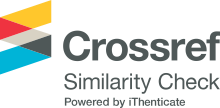Abstract
Background: Acne vulgaris is an inflammatory condition of the pilosebaceous glands caused by various factors including excessive excretion of sebaceous glands. Excess sebum can be reduced using oil blotting paper (OBP), a thin paper with microspores that absorb the oil on the face. This study was conducted to determine the association between OBP application and sebum excretion according to the Oily Skin Self- Assessment Scale (OSSAS) questionnaire and acne severity according to the Global Acne Grading System (GAGS) questionnaire.
Methods: This experimental study was conducted in 2017 among 60 students aged 17–22 years at the Faculty of Medicine, Atma Jaya Catholic University of Indonesia, recruited by purposive sampling. Data on sebum excretion and the degree of AV severity before and after intervention were analyzed using the chi- square test with a significant level of p < 0.05.
Results: Before intervention, 11 (18.3%) students had dry skin, 23 (38.3%) had slightly dry skin, 17 (28.4%) had slightly oily skin, and 9 (15%) had oily skin. The prevalence of AV was 100%, with 48 (80%) students having mild severity and the remaining having moderate severity. There was no effect of using OBP on sebum excretion (p = 0.211); however, an improvement was noted on GAGS raw data score (p < 0.001).
Conclusion: AV is an inflammatory disease of the pilosebaceous glands, and one of the etiologies is excessive sebum excretion, which can be reduced using OBP. This study demonstrated that OBP application did not reduce sebum excretion statistically but could improve the severity of AV.
Recommended Citation
Alberta, Ivana Beatrice; Hermawan, Melyawati; and Ali, Soegianto
(2020)
"The association between blotting paper application and severity of acne vulgaris among medical students,"
Journal of General - Procedural Dermatology and Venereology Indonesia: Vol. 4:
Iss.
2, Article 3.
DOI: 10.19100/jdvi.v4i2.135
Available at:
https://scholarhub.ui.ac.id/jdvi/vol4/iss2/3
Included in
Dermatology Commons, Integumentary System Commons, Skin and Connective Tissue Diseases Commons



